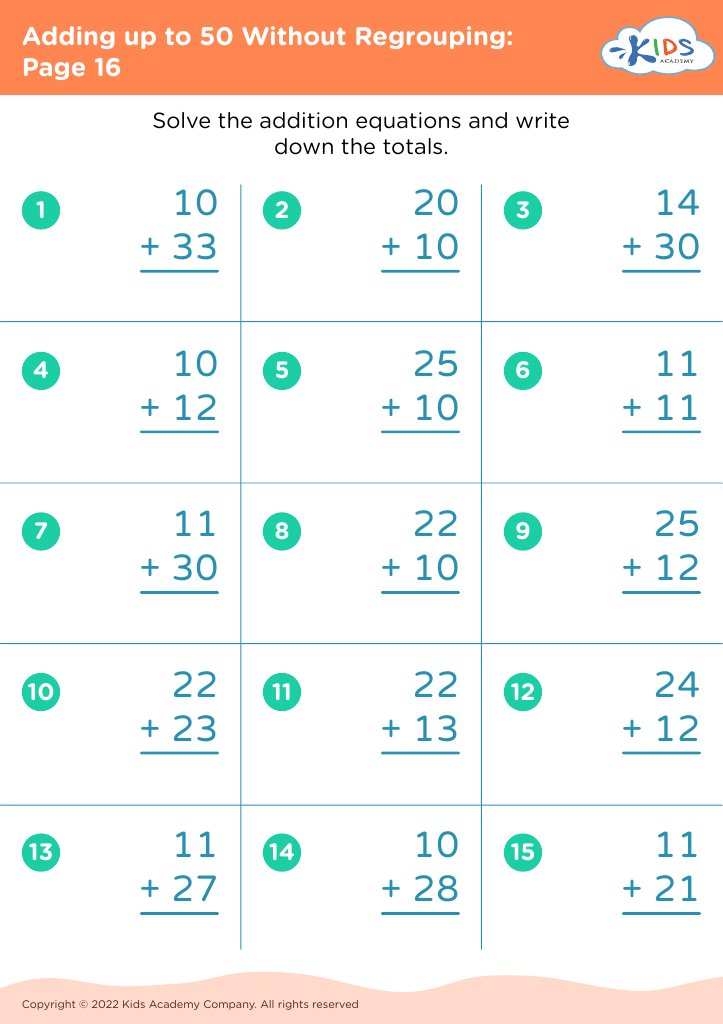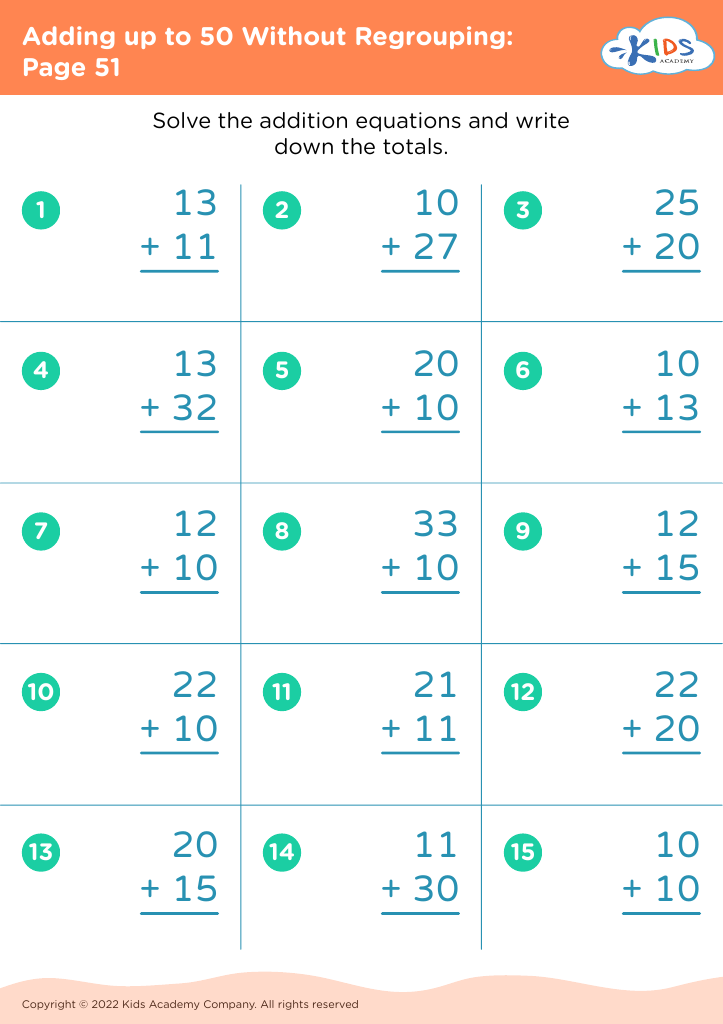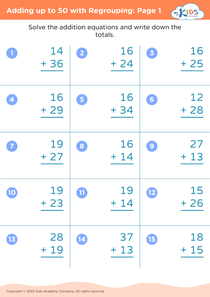Basic Math Skills Adding up to 50 Without Regrouping Worksheets for Ages 3-8
6 filtered results
-
From - To
Welcome to our collection of "Basic Math Skills Adding up to 50 Without Regrouping Worksheets" designed specifically for children ages 3-8. These engaging worksheets focus on building foundational math skills through fun exercises that help young learners practice addition. With a range of problems that encourage children's understanding of how to combine numbers up to 50 without the need for regrouping, your child will develop confidence and proficiency in their math abilities. Perfect for both classroom use and at-home practice, these worksheets support early math education and make learning addition a delightful experience. Start your math journey today!
Parents and teachers should prioritize basic math skills, especially adding up to 50 without regrouping, for children ages 3-8 because these foundational concepts are critical for future learning. Young children are naturally curious about numbers; fostering this interest helps develop their early math competencies, which are essential in a range of everyday contexts. Mastery of addition without regrouping builds confidence, allowing children to tackle more complex operations later.
Engaging students with simple arithmetic aids in cognitive development, improving problem-solving and critical thinking abilities. It encourages them to approach challenges methodically, enhancing their reasoning skills. Furthermore, basic math skills serve as building blocks for more advanced math topics like subtraction, multiplication, and division, ensuring a smooth transition through their educational journey.
In this digital age, where technology is prevalent, having solid arithmetic skills equips children with the ability to understand and manipulate numerical information effectively. This capability will not only benefit them academically but also prepare them for practical life scenarios involving budgeting, shopping, and basic financial literacy.
Ultimately, nurturing these skills at an early age lays the groundwork for lifelong mathematical understanding and success, supporting children's growth into confident, competent learners.





















